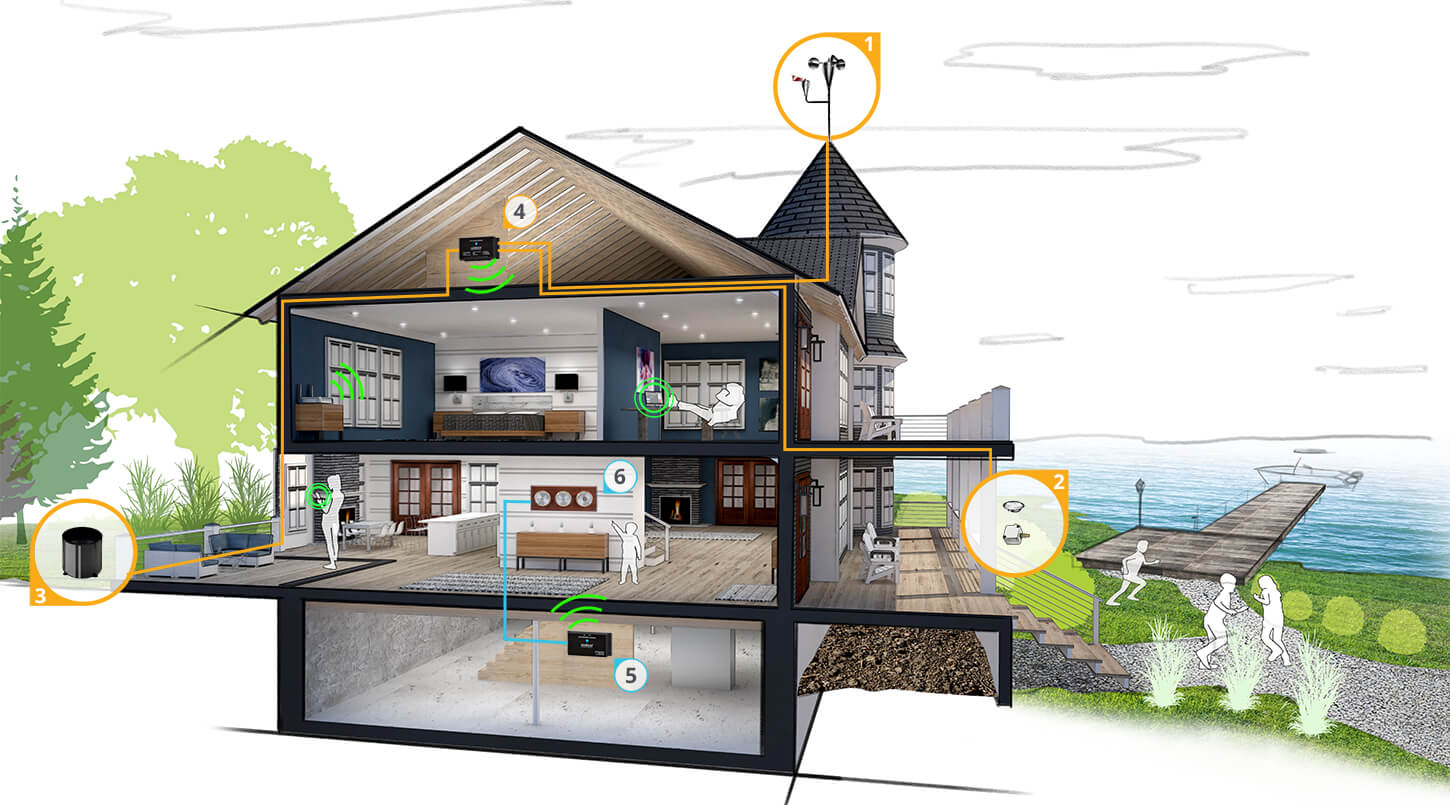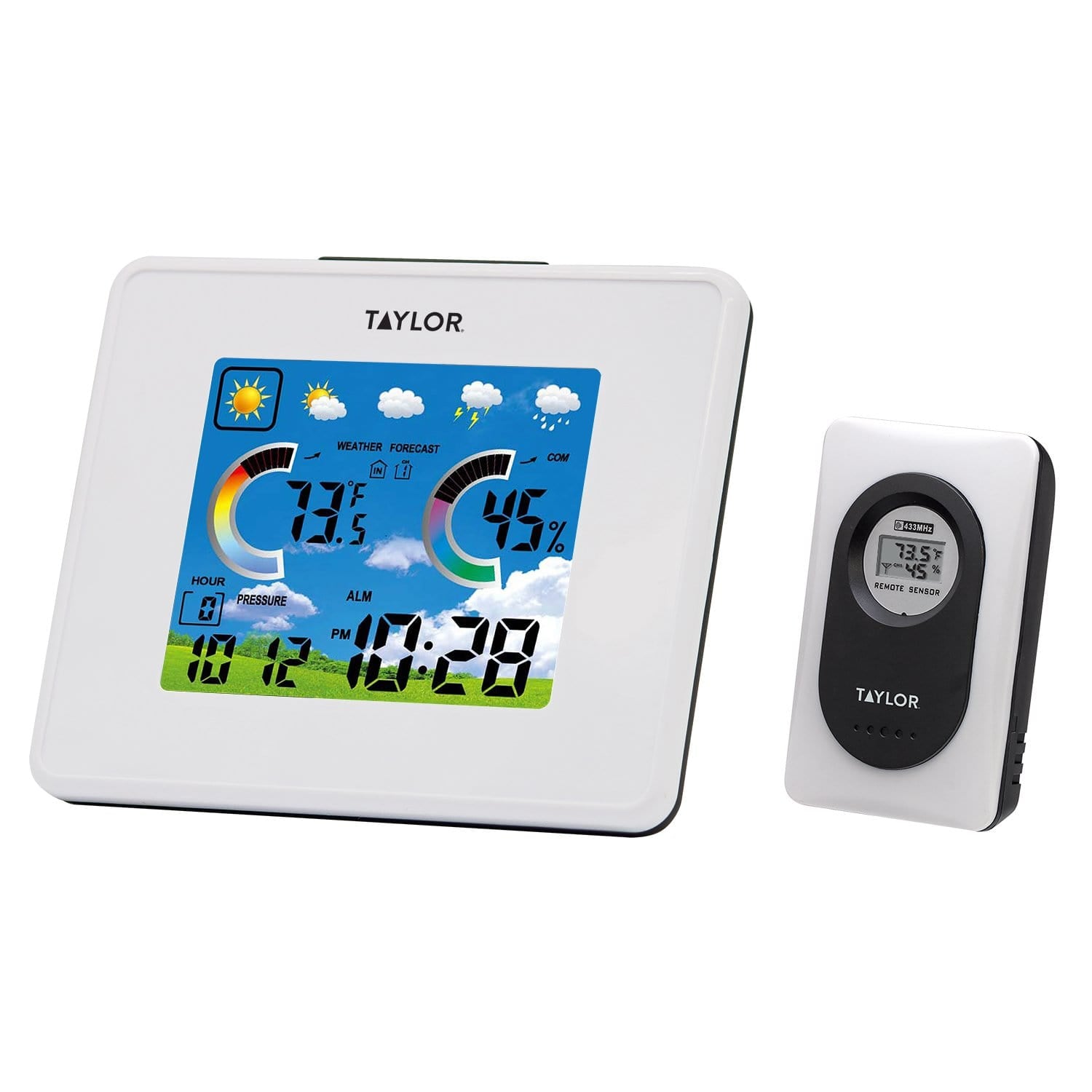Top 10 Functions to Try To Find in Modern Weather Stations for Definite Projecting
Top 10 Functions to Try To Find in Modern Weather Stations for Definite Projecting
Blog Article
Discovering the Various Kinds Of Professional Climate Terminals for Accurate Information Collection
When it comes to choosing the appropriate climate terminal for information collection, the market uses a range of options customized to different demands and settings. Let's check out the nuances of these expert weather stations to comprehend their one-of-a-kind functionalities and identify the finest fit for particular data collection demands.
Digital Weather Condition Stations
In the realm of atmospheric instrumentation, digital climate terminals stand out as sophisticated devices for exact information collection and analysis. These advanced stations are geared up with sensing units that catch a large range of weather condition criteria such as temperature level, moisture, barometric stress, wind speed, and direction. The data accumulated by digital weather stations is transferred wirelessly to a main console or a computer system for real-time monitoring and analysis.
Among the key benefits of electronic climate terminals is their ability to give high-resolution information with precision and integrity. This level of precision is essential for various applications, including farming, aviation, emergency, and study reaction. In addition, digital weather terminals usually come with software application that allows users to visualize the information in different formats like charts and charts, promoting much easier interpretation and decision-making.
Wireless Climate Stations
Building on the capabilities of digital weather condition stations, wireless climate stations provide enhanced ease and versatility in information transmission and monitoring. By using cordless innovation, these weather terminals remove the requirement for cumbersome wired connections, permitting for easy installation in various areas. The wireless function allows real-time data tracking from remote locations, providing meteorologists and weather fanatics with instant accessibility to important information.
Wireless weather terminals typically include sensors that accumulate information on temperature level, moisture, barometric stress, wind rate, and instructions. These sensing units wirelessly transfer the information to a main console or receiver, where it is processed and presented for analysis. Some progressed wireless climate stations can even link to the net, enabling customers to access their climate information remotely by means of computers or smartphones.

Prosumer Climate Stations
What differentiates Prosumer Weather Stations from conventional consumer-grade weather condition stations? Prosumer Weather condition Stations bridge the void between professional-grade and consumer-grade equipment, supplying more sophisticated features and higher accuracy than common home weather condition terminals. These stations are created for climate fanatics, amateur meteorologists, and tiny businesses that need even more precise data than what consumer designs can give.
Prosumer Weather Stations usually include a larger variety of sensors to determine additional meteorological parameters such as UV index, leaf wetness, and dirt dampness. They additionally often tend to have a greater level of toughness and dependability, making them appropriate for long-lasting outdoor use in numerous ecological problems.


Industrial Climate Stations
Industrial Weather condition Stations, also referred to as atmospheric monitoring systems, are specialized instruments made for robust and exact weather condition information collection in industrial settings. These stations are customized to meet the distinct needs of commercial operations where accurate weather condition details is important for security, performance, and decision-making procedures.
Industrial weather stations are furnished with innovative sensing units that can measure a variety of atmospheric parameters such as temperature, humidity, wind speed and direction, barometric pressure, and precipitation (Weather Stations). These stations are commonly ruggedly constructed to hold up against harsh environmental conditions generally found in industrial atmospheres
One secret function of industrial weather condition stations is their capability to offer real-time data monitoring and analysis. This allows commercial centers to prepare for weather-related threats, maximize procedures based on climate condition, and ensure the safety of personnel and tools. In addition, commercial weather condition stations can be integrated right into existing commercial control systems for seamless data management and automation.
Portable Climate Terminals
In comparison to stationary industrial weather terminals, mobile weather condition stations offer adaptability and flexibility for on-the-go information collection in different environmental setups. These small systems are developed to be easily transported to different areas, making them suitable for field research, emergency situation action circumstances, agriculture, building and construction sites, and outdoor occasions.
Portable weather terminals usually include sensing units for determining parameters such as temperature level, humidity, barometric stress, wind speed, and wind instructions. Some advanced versions may additionally feature added sensors for checking rainfall, solar radiation, and UV degrees. In spite of their tiny size, mobile weather terminals can giving reputable and accurate data equivalent to that of larger, taken care of stations.
Among the key advantages of mobile weather stations is their fast deployment and simplicity of arrangement. They can be operational within minutes, permitting for rapid data collection and analysis. In addition, these stations can be configured to send real-time information wirelessly, allowing individuals to check about his and evaluate ecological problems from another location. In general, portable climate terminals are important tools for specialists calling for mobile, accurate, and timely weather condition info in varied setups.
Verdict
In verdict, expert weather terminals come in different types such as digital, cordless, prosumer, industrial, and mobile. By comprehending the differences in between these types of climate terminals, individuals can make enlightened decisions to guarantee hop over to here they obtain the most precise and reliable weather information for their purposes.
Climate))))
Building on the capacities of digital weather terminals, cordless weather condition terminals use enhanced comfort and flexibility in information transmission and monitoring. Some progressed wireless weather condition stations can also attach to the web, allowing individuals to access their climate data from another location through computer systems or smartphones.
Prosumer Weather condition Stations bridge the void between professional-grade and consumer-grade equipment, using even more advanced functions and greater accuracy than normal home climate stations. Weather Stations. Generally, mobile weather stations are very useful tools for experts my company calling for portable, precise, and prompt climate information in diverse setups
By recognizing the distinctions between these types of weather condition terminals, individuals can make informed decisions to guarantee they obtain the most trustworthy and specific weather data for their functions.
Report this page